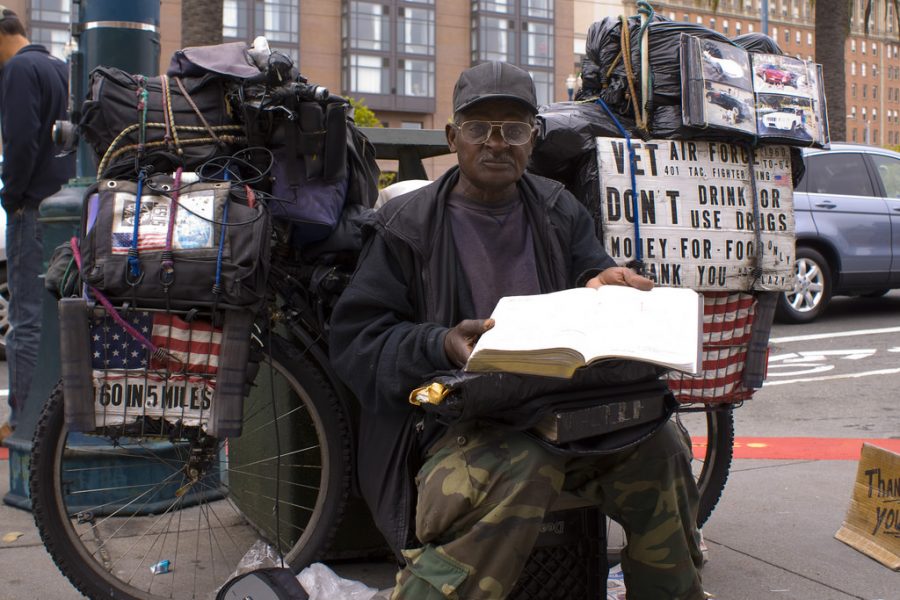Are Homeless Veterans Getting The Help They Need?
Homeless Air Force veteran.
In the last decade, According to the National Coalition for Homeless Veterans, there are 50,000 homeless veterans in the United States, around 2.4 million living in the United States in total, and 1.4 million who are at risk of homelessness due to poverty, poor current living conditions, and a lack of a support network upon their return.
The unemployment rate for veterans has risen from 6.9% to 10% for those who have served since the horrific events on September 11th, 2001. Due to common stereotypes regarding Veterans, they face judgement in the regular workforce by employers who have misconceptions including that all Veterans suffer from PTSD or that their former training prevents them from becoming good leaders. The shift from combat to working a 9/5 job in normal civilian life is a change all former soldiers must learn to adapt to.
Nevertheless, 50% of veterans do struggle with disorders such as Post-Traumatic Stress Disorder, and 70% of homeless veterans are battling with substance abuse. If the United States government was able to provide support that its heros need, they would have the ability to safely join the common workforce.
Additionally, female veterans have issues that men may not have when leaving for and returning from war. 30,000 women deployed to Iraq and Afghanistan are single mothers of young children, and according to the Department of Defense, 20% of these women are victims of sexual assault in the military. Currently, 10% of homeless veterans are women but this number is expected to grow as more and more women serve.
The United States’s largest system that helps veterans is the Veterans Affair. This network funds different services that have homeless prevention programs across the country, but the VA only reaches about 30% of veterans both homeless and not. In recent years, the program has provided healthcare to over 800,000 new patients and created a health record program worth $5 billion called Blue Button for veterans not associated with Veterans Affairs. Hopefully the trend continues and more people coming home from combat can be given the resources they need to return to civilian life.
http://www.foxnews.com/opinion/2015/07/15/veterans-who-have-lost-their-way-deserve-hand-up.html

